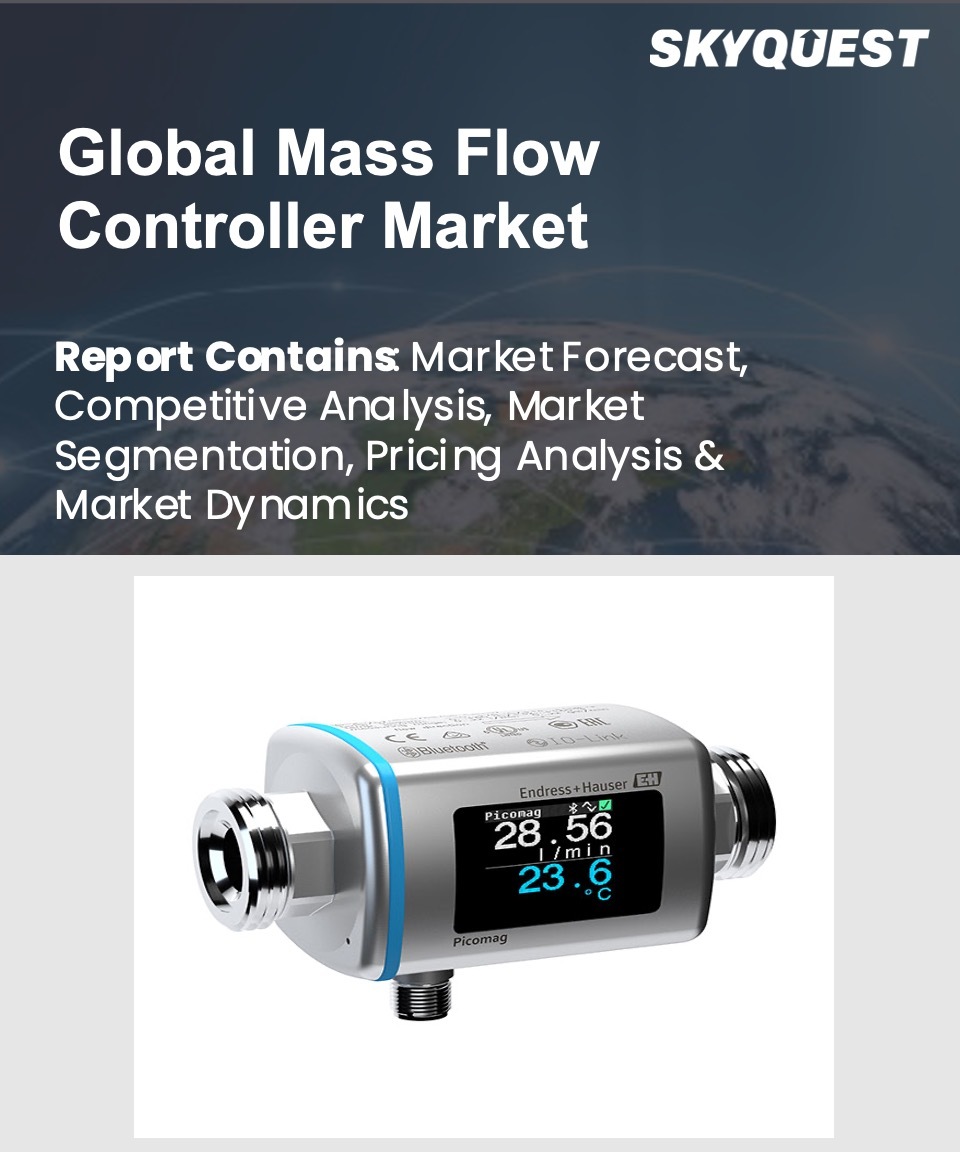
Report ID: SQMIG45J2048

Report ID:
SQMIG45J2048 |
Region:
Global |
Published Date: October, 2024
Pages:
157
|
Tables:
116 |
Figures:
76
Mass Flow Controller Market Drivers
More Demand for High Precision in Industrial Applications
Growing Healthcare Sector
Mass Flow Controller Market Restraints
High Upfront Cost
Problem in Maintenance and Calibration
Our industry expert will work with you to provide you with customized data in a short amount of time.
REQUEST FREE CUSTOMIZATIONWant to customize this report? This report can be personalized according to your needs. Our analysts and industry experts will work directly with you to understand your requirements and provide you with customized data in a short amount of time. We offer $1000 worth of FREE customization at the time of purchase.

Report ID: SQMIG45J2048